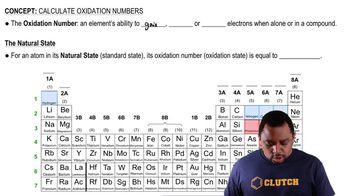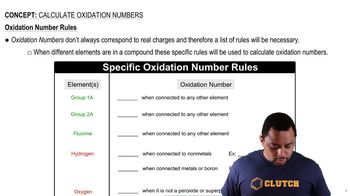Textbook Question
Classify each of the following as a component of a silicate ceramic, an oxide ceramic, or a nonoxide ceramic. c. MoSi2

 Verified step by step guidance
Verified step by step guidance


Classify each of the following as a component of a silicate ceramic, an oxide ceramic, or a nonoxide ceramic. c. MoSi2
Which solid would you expect to have little or no band gap? a. Zn(s) b. Si(s) c. As(s)
Which solid would you expect to have the largest band gap? a. As(s) b. Sb(s) c. Bi(s)